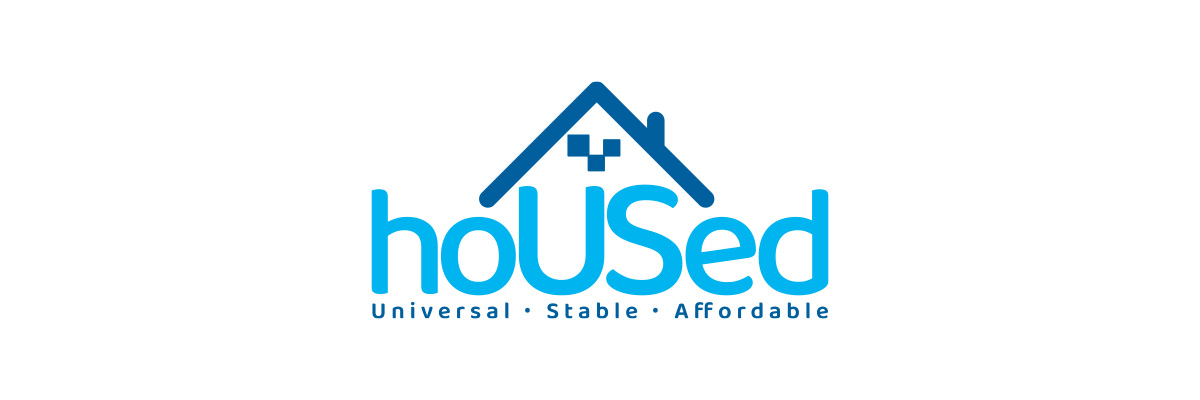
-
About
More than ever, bold policies are needed to ensure that America’s lowest-income and most marginalized households – including seniors, people with disabilities, families and children, and others – have a stable, accessible, affordable home.
Each day, millions of renters struggle to afford the roof over their head, and more than 770,000 people have no home at all. Because of ongoing structural racism, Black, Indigenous, and Latino households are disproportionately harmed. Proactive policies are needed to correct these long-standing injustices and end America’s housing and homelessness crisis once and for all.
NLIHC launched the national HoUSed campaign to achieve the large-scale, sustained investments and anti-racist reforms necessary to ensure that everyone, including renters with the lowest incomes, has an affordable place to call home.
To achieve this, we must work at the federal, state, and local levels to:
Bridge the gap between incomes and housing costs
Congress must expand rental assistance to all eligible households. Renters today need to earn $26.74 an hour to afford a modest, one-bedroom apartment. In comparison, the average renter earns just $23.18 an hour and 14 of the 20 largest occupations pay median wages below what it takes to afford a modest, one-bedroom home. Despite the clear need, only one in four households eligible for rental assistance receive it.
Learn more about how we can ensure rental assistance is universally available.
Expand and preserve the supply of rental homes
Nationally, there is a shortage of 7.3 million homes affordable and available to extremely low-income households. For every 10 of these households, there are fewer than 4 homes affordable and available to them. No state or congressional district in America has enough supply of affordable housing for families with the lowest incomes.
Learn more about ways to build and preserve homes affordable and accessible to people with the lowest incomes.
Prevent evictions and housing instability
Create ongoing resources to provide emergency rental assistance to households in crisis. Ten million of America’s lowest-income households pay at least half their limited incomes on rent. These families are always one financial shock – a broken-down car, an unexpected medical bill, or a missed day at work – away from economic hardship that could quickly spiral out of control and lead to evictions and, in worst cases, homelessness.
Learn more about how we can stabilize households during a crisis.
Strengthen and enforce robust renter protections
The power imbalance between renters and landlords continues to put renters at greater risk of housing instability, eviction, harassment, and homelessness, fueling racial inequities. Clear, strong, and enforceable renter protections are needed at the local, state, and national level to protect renters from abusive and predatory actions by landlords.
Learn more about how we can build power for renters and enact robust renter protections, such as those included in the National Tenants Bill of Rights.
For more information on federal solutions, contact NLIHC Senior Vice President of Public Policy and Field Organizing Sarah Saadian at [email protected] and NLIHC Policy Manager Kim Johnson at [email protected].
To learn more about state and local solutions, please visit NLIHC’s State and Local Innovation Project page or contact NLIHC Vice President of State and Local Innovation Sarah Gallagher at [email protected].
-
Join the Campaign
Join the national HoUSed campaign and our working groups to ensure that everyone, including renters with the lowest incomes, has an affordable place to call home.
Endorse the HoUSed Campaign
- Join the national HoUSed campaign! Add your organization to our campaign letter and read the current list of signatories.
Participate in Working Groups
- Participate in our national call! Learn more about federal, state, and local efforts to advance housing solutions and how you can take action.
- Join the Tenant Protections Network! Learn more about how you can advance state and local tenant protections in your community.
-
Take Action
Join us in urging Congress to advance the equitable, anti-racist policies and large-scale, sustained investments needed to ensure renters with the lowest incomes have an affordable place to call home!
Legislative Action Center
Check out NLIHC’s Legislative Action Center for the latest opportunities for advocacy!
Key Legislation
Check out our comprehensive list of bills to advance NLIHC’s HoUSed campaign policy agenda.
Advocacy Materials
The NLIHC national HoUSed campaign regularly releases fact sheets, reports, and other resources advocates can use to educate policymakers about long-term solutions to America’s housing and homelessness crisis.
Advocacy Toolkits
Opposing Cuts to Federal Investments in Affordable Housing (2024)
Oppose the Criminalization of Homelessness and Advance Long-Term Solutions (2024)
Capitol Hill Day Advocacy Toolkit (March 2024)
Congressional Recess Toolkit (August 2023)
Factsheets
-
Learn More
The primary causes of America’s housing and homelessness crisis are the severe shortage of homes affordable to America’s lowest-income renters and high housing costs that are out of reach for too many renters. Find information about how the housing crisis impacts renters in your state and community.
When we invest in affordable housing and advance housing justice, we can improve nearly every outcome in life: housing justice is necessary to achieve racial equity, improve education and health outcomes, and increase economic mobility and housing stability.